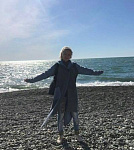Many people dream of moving to Dubai because it is the epitome of modernity, prosperity and stability. Clean streets, a cosmopolitan society and high salaries attract many. However, before you make the move, you should be aware of the downsides of living in beautiful Dubai - to avoid any unpleasant surprises later on.
Pros of living in Dubai
Society and people
Dubai is a multicultural metropolis with people from more than 200 nationalities. There is respect for cultural differences, which makes the city particularly attractive to expatriates. Most residents speak English, which is the language of business communication. This makes it easier for expats who do not speak Arabic to adapt. However, it is not necessary to learn Arabic to live there permanently: it will only be required in exceptional cases. But for everyday life and work, English will be perfectly adequate.
Russian-speaking citizens are often struck by the friendliness of both local residents and people of other nationalities. There is an active Russian-speaking community in the city, which helps to ease the transition. There are also Russian schools, shops and restaurants in the city, making Dubai a comfortable place for those who have just moved here.
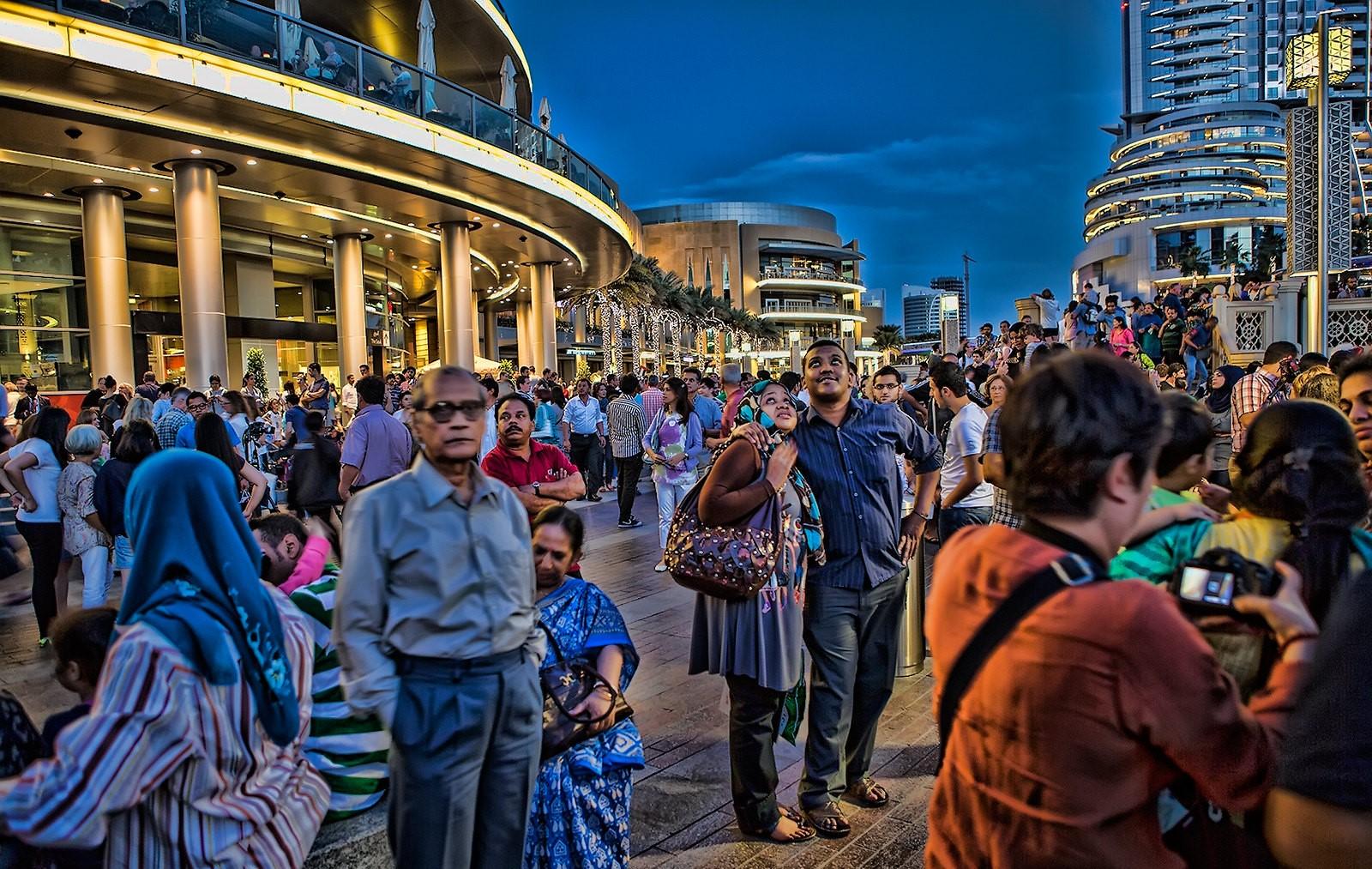
Attitudes towards expats are generally positive, and tolerance and respect for cultural differences are encouraged at the legislative level. For example, any form of discrimination is strictly prohibited in Dubai, which helps to create a comfortable environment for all.
For CIS nationals, the presence of consulates, Russian-language services and cultural events is an important asset. This allows them to stay in touch with their homeland even when they are far away.
Clean and beautiful city
Dubai is rightly regarded as one of the cleanest cities in the world. Streets are regularly cleaned and strict cleanliness rules are followed by both locals and tourists. Unlike many metropolises, it is almost impossible to find rubbish on the pavements or untidy areas.
The city's architectural diversity attracts millions of tourists. Skyscrapers such as the Burj Khalifa and the Burj el-Arab Hotel have become benchmarks of modern urban planning. Coastal neighbourhoods are adorned with white sand beaches and residential complexes blend into the cityscape, creating a perfect blend of convenience and aesthetics.
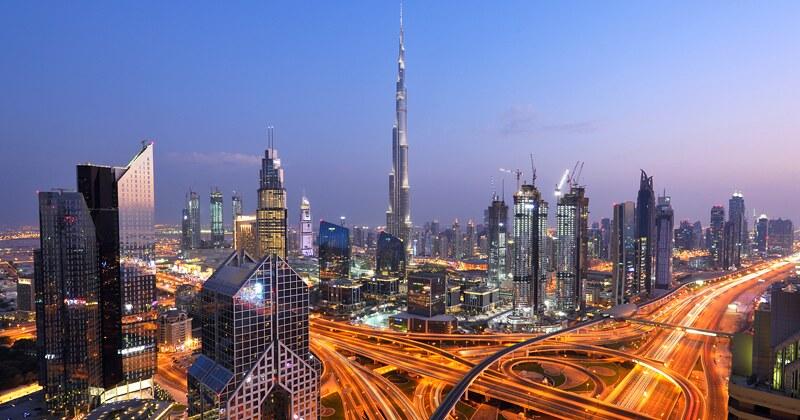
Attention to landscaping is also an important aspect. Dubai has many parks, artificial reservoirs and green areas, making it attractive to nature lovers. Even in the hot season, you can find a place to walk in the shade of palm trees or relax in specially designed areas.
High standards of service and living
Dubai is renowned for the quality of service it offers in all aspects of life, from restaurants and shopping to medical facilities. Shops have staff on hand to help with any queries and hotels offer world-class service. The city has positioned itself as a place for comfortable, carefree and luxurious living, as evidenced by reviews from locals and tourists alike.
The city also offers endless shopping opportunities. It is home to some of the world's largest shopping malls, such as The Dubai Mall, with luxury and mass-market brands. But shopping is only part of the fun. Dubai is also known for its walking areas, cosy cafes and beaches, making it a great destination for those who like to spend their leisure time in this way.
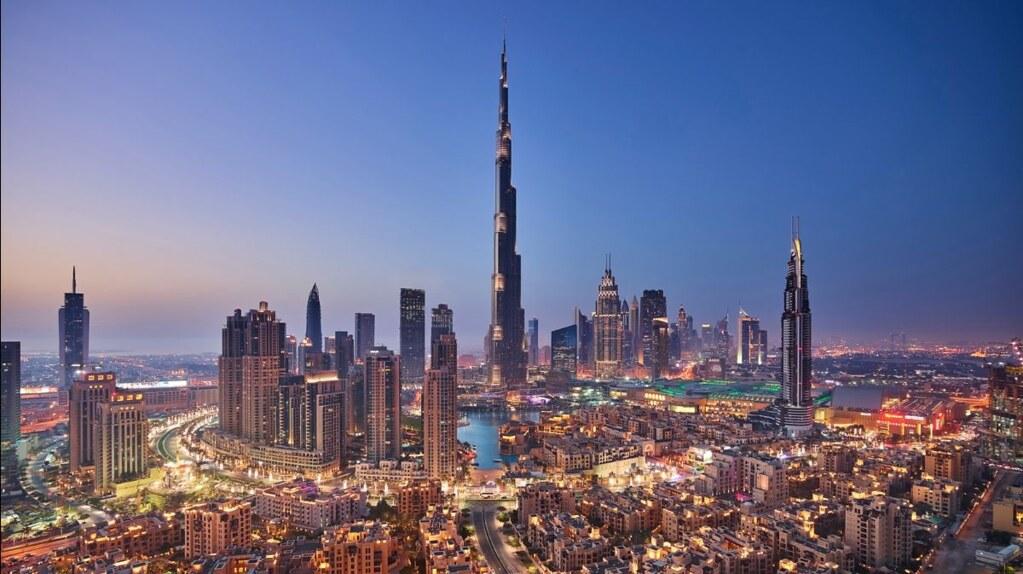
Safety is another important factor that enhances the standard of living. The low crime rate and strict enforcement of the law give residents and visitors to Dubai peace of mind. You can walk around the city at any time of the day without worrying about your safety.
For those who enjoy active holidays, the city has a rich infrastructure. There are parks, sports grounds and miles of beautiful promenades where you can jog, cycle or simply enjoy the views of the Persian Gulf.
A wide range of properties for sale and rent
Dubai's property market is diverse. You can find everything from ultra-modern apartments in high-rise buildings to luxury villas overlooking the sea. Many apartment complexes offer additional amenities such as swimming pools, gyms, playgrounds and 24-hour security.
Rental accommodation is available for both short and long term stays. This is particularly convenient for new residents who wish to evaluate the area before buying a property or relocating. Prices vary according to location and level of comfort, so there is an option to suit every budget.
Property in Dubai is also a profitable investment. Residential prices are rising steadily and rental demand is high, providing an attractive return on investment. Buying a property from AED 750,000 allows you to obtain a residency permit (from 5 to 10 years), making this market particularly attractive to foreign investors.
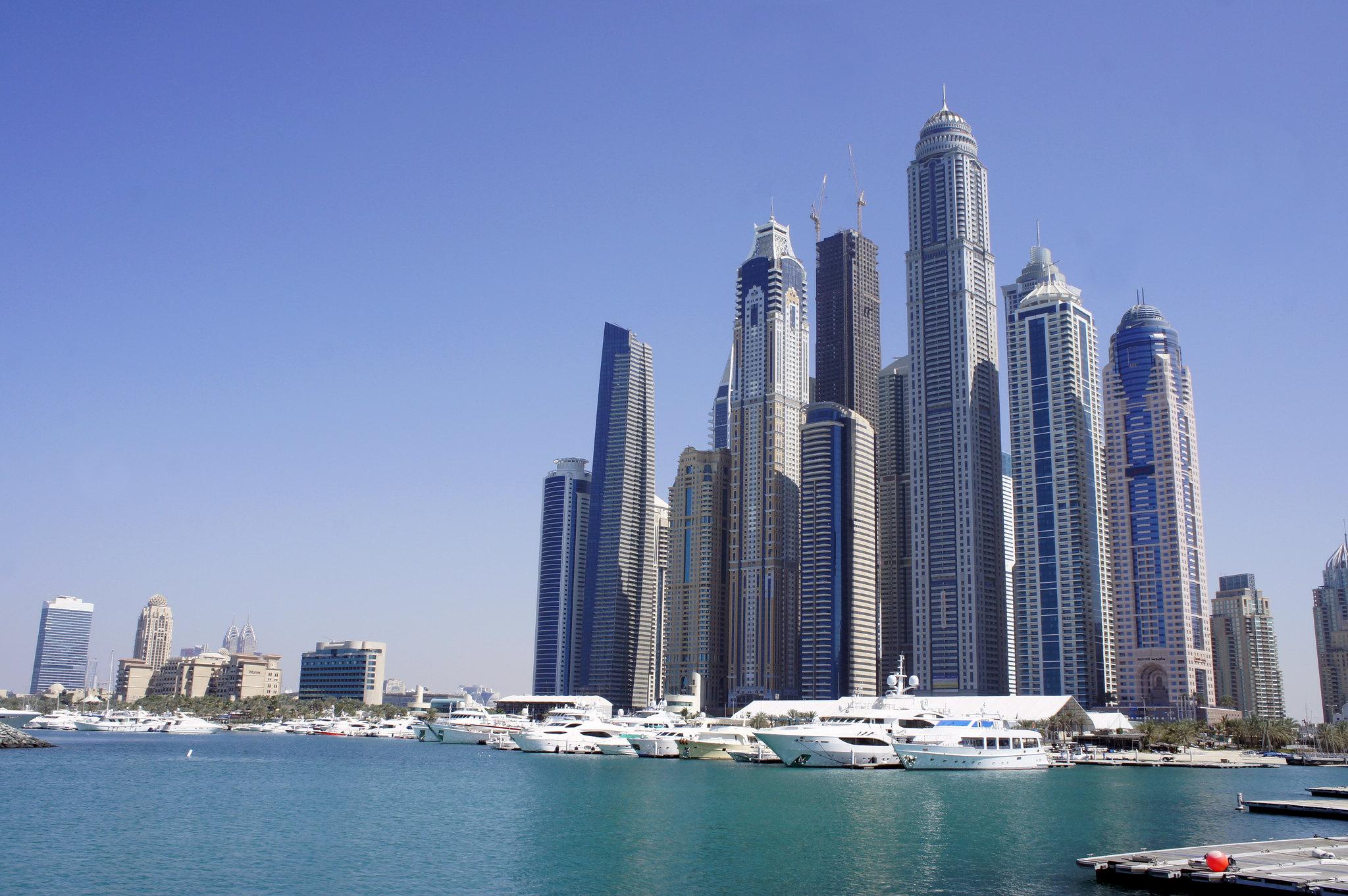
For families with children, there are residential complexes with access to schools, children's centres and green areas. This makes it easy to organise everyday life and makes the city an ideal place to live permanently.
Transport and Travel
Dubai has one of the most advanced transport systems in the world. Metros, buses and trams connect the main areas of the city, making it easy to travel any distance. Public transport is air-conditioned, which is especially important in the hot climate.
For motorists, Dubai has wide roads with convenient interchanges. Local companies offer competitive car rental rates, and the presence of a large number of petrol stations and a well-developed infrastructure makes driving convenient for those who are just getting to know the country or are new to driving.
Travellers will appreciate Dubai's two international airports, DXB and DWC, which are among the largest aviation hubs in the world. It is easy to get to almost anywhere in the world from here, and the presence of consulates of many countries simplifies the visa process.
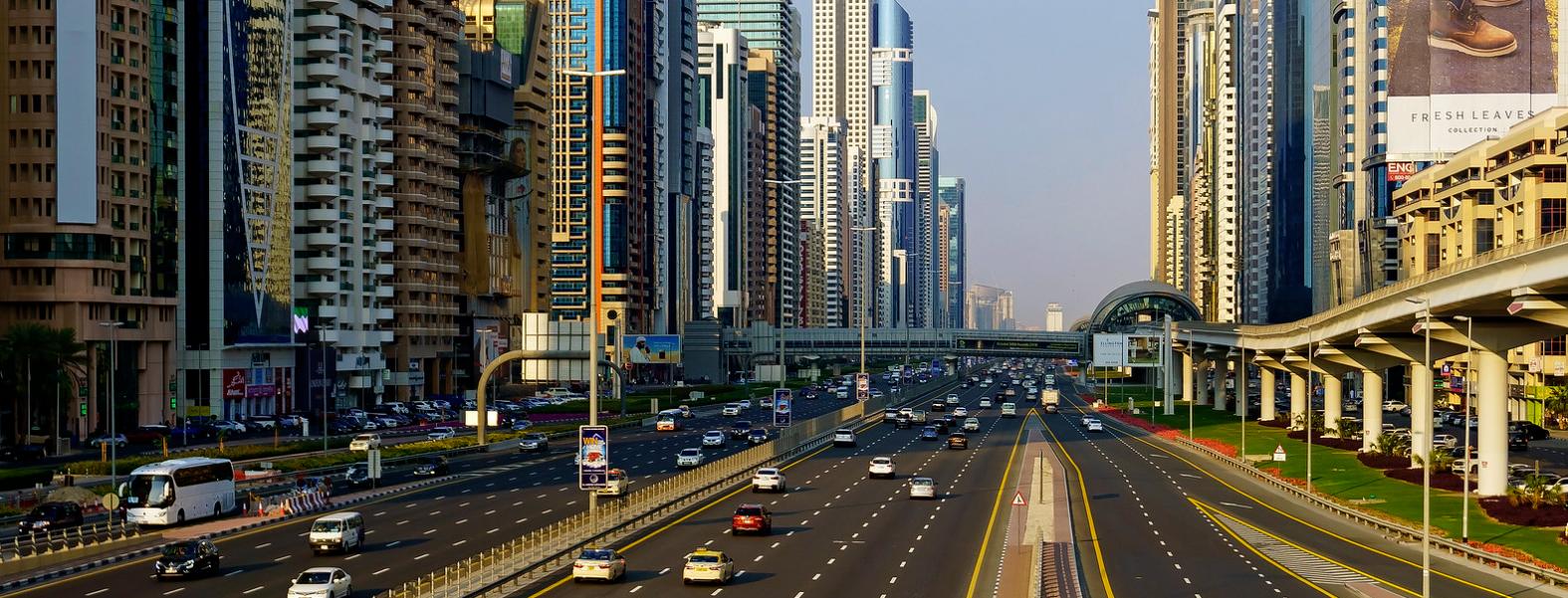
For the more active, there are excursions to the desert, sea cruises and trips to neighbouring emirates. This makes Dubai not only a great place to live, but also a great place to travel.
Excellent business opportunities
Dubai is known for its stable and dynamic economy, making it an ideal place to start and grow a business. The conditions are right for start-ups, small and medium enterprises and large corporations. A particular advantage is the Free Trade Zones, where companies are exempt from income tax and receive full ownership of the business.
Low taxes and minimal customs duties help to attract investment. There are no corporate or income taxes for most businesses, making Dubai particularly attractive to entrepreneurs. In addition, the city's convenient location makes it a logistics hub between Europe, Asia and Africa.
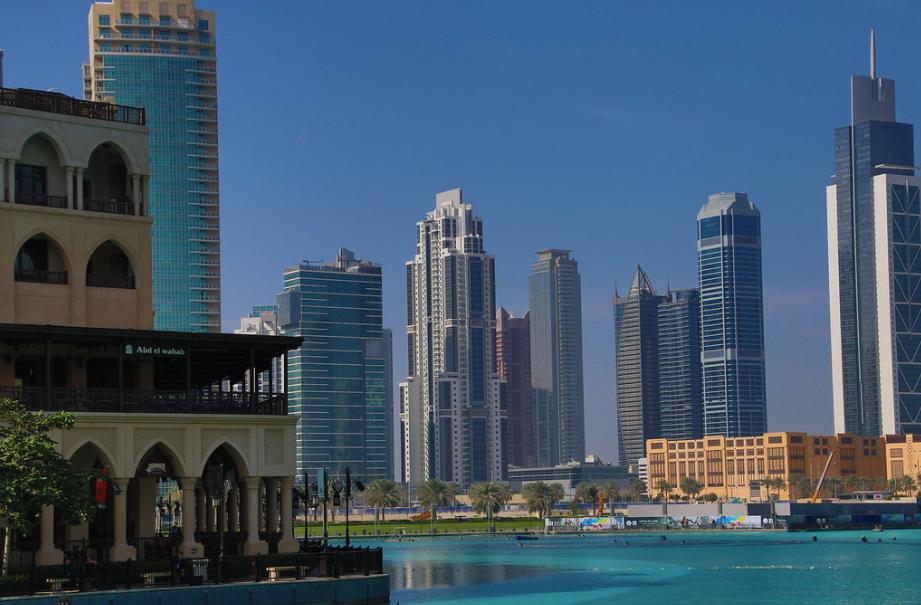
Business opportunities cover many sectors, from real estate and tourism to technology and finance. A well-developed infrastructure and government support help entrepreneurs launch and promote their projects. Electronic services simplify business registration and interaction with government agencies.
Note: Emirates have generally low level of bureaucracy, although some processes can be lengthy.
Particular attention is being paid to the development of innovation. The city is actively investing in digital technologies, green energy and artificial intelligence, attracting cutting-edge companies from around the world. All this allows businesses to operate in a forward-thinking environment.
Jobs and salaries
Finding a job in Dubai is easier than in most parts of the world - especially if you have in-demand skills. Specialists in engineering, construction, medicine, finance and hospitality are highly valued. Many companies offer additional benefits such as housing, medical insurance and flight allowances.
Average salaries in Dubai are significantly higher than in the CIS. The minimum salary often starts at $1.2 thousand, for qualified personnel at $3 thousand, and in certain fields, such as IT or medicine, the income can reach $10 thousand and more.
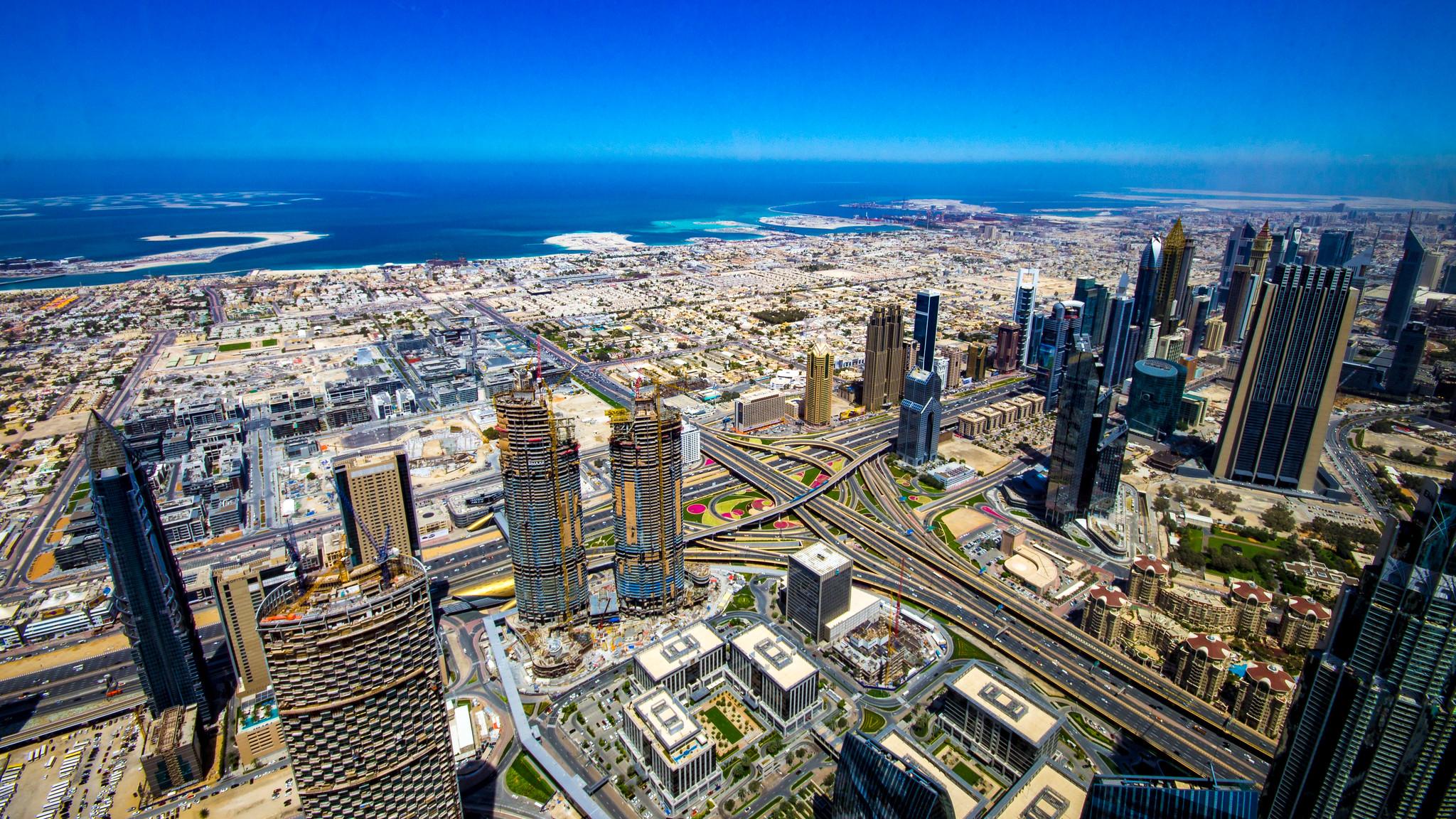
Since there is no income tax, employees have almost all of their earnings at their disposal. This can be used not only to cover living expenses, but also to save or invest money.
Employment requires a visa, which is provided by the employer. The process is usually straightforward and takes a few weeks. However, it is important to remember that competition for the best positions can be fierce, especially among foreign professionals.
Proximity to the sea and beaches
Dubai is located on the coast of the Persian Gulf, giving you the opportunity to enjoy the sea all year round. Many developed beaches offer everything you need for a relaxing holiday, from sunbeds and umbrellas to cafes and sports facilities. This makes the city particularly attractive to families with children and beach lovers.
The bathing season practically never ends, as the water temperature remains comfortable even in winter (minimum +22 degrees). In summer, the beaches are still crowded, thanks to the special cooling zones.
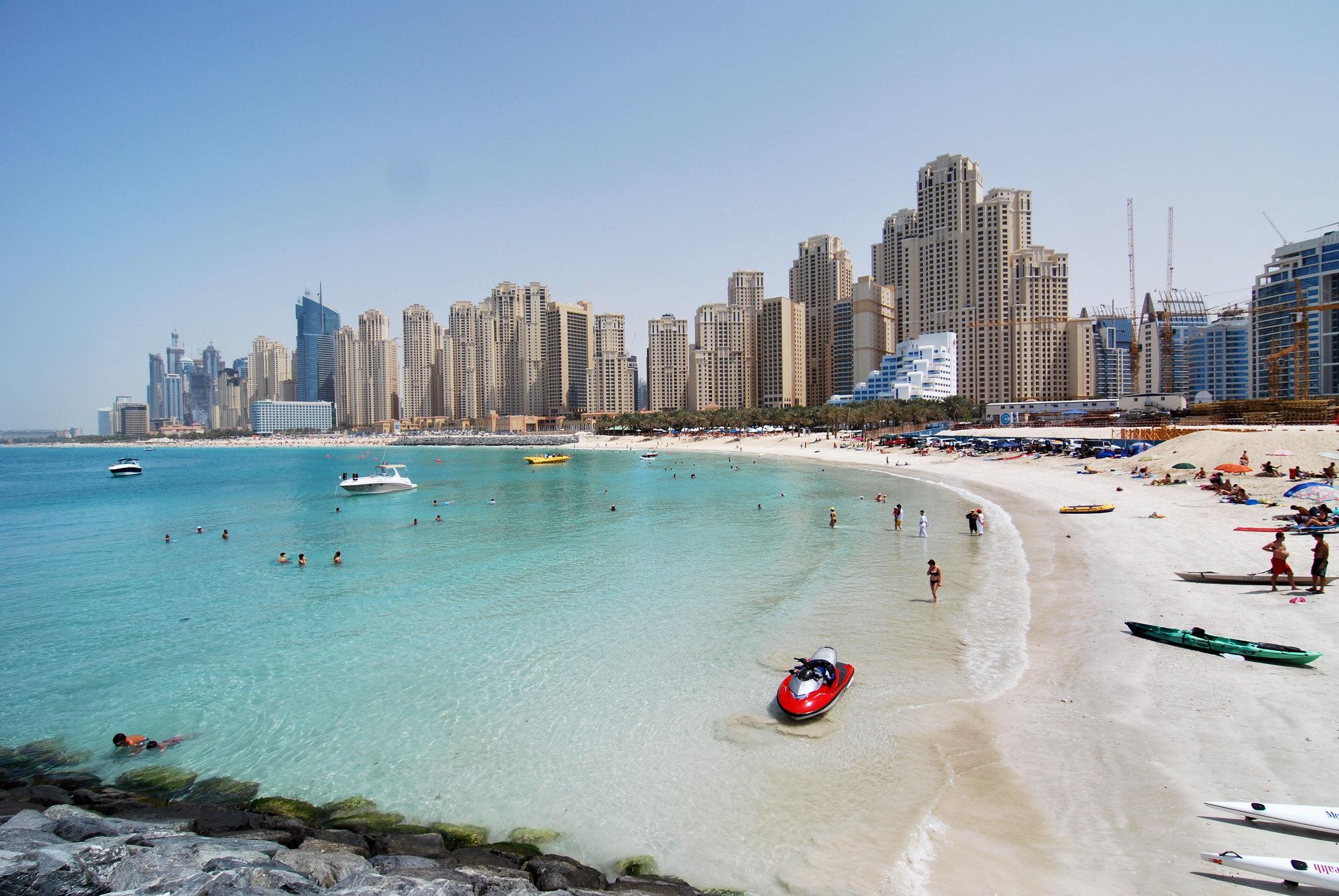
For those who prefer privacy, there are private beaches, which can be accessed for an additional fee. They offer a quieter atmosphere and a high level of service. In addition, many residential complexes have their own recreational areas by the sea.
Beach infrastructure is being actively developed, including promenades, parks and restaurants overlooking the water. This allows residents to enjoy regular seaside holidays without leaving the city.
Availability of International Universities
Dubai is an educational hub with branches of the world's leading universities. You can obtain diplomas from British, American, Australian and Canadian educational institutions without leaving the UAE.
International students are well catered for, from on-campus accommodation to visa support. Many universities offer internship programmes, allowing students to gain work experience while studying.
The best graduates are given the opportunity to stay in the country after graduation. The government incentivises young professionals by offering them long-term residency visas. This makes Dubai particularly attractive to those looking to build a career in an international environment.
The city also hosts educational forums and exhibitions where students can meet future employers and choose the most promising areas of development.
Disadvantages of living in Dubai
High prices for property and living in general
One of the main disadvantages of living in Dubai is the high cost of living. Property prices are much higher than in most GCC cities. Renting an apartment in an average residential complex can start from AED 1.2 thousand per month, and buying a property is often beyond the reach of people with average incomes.
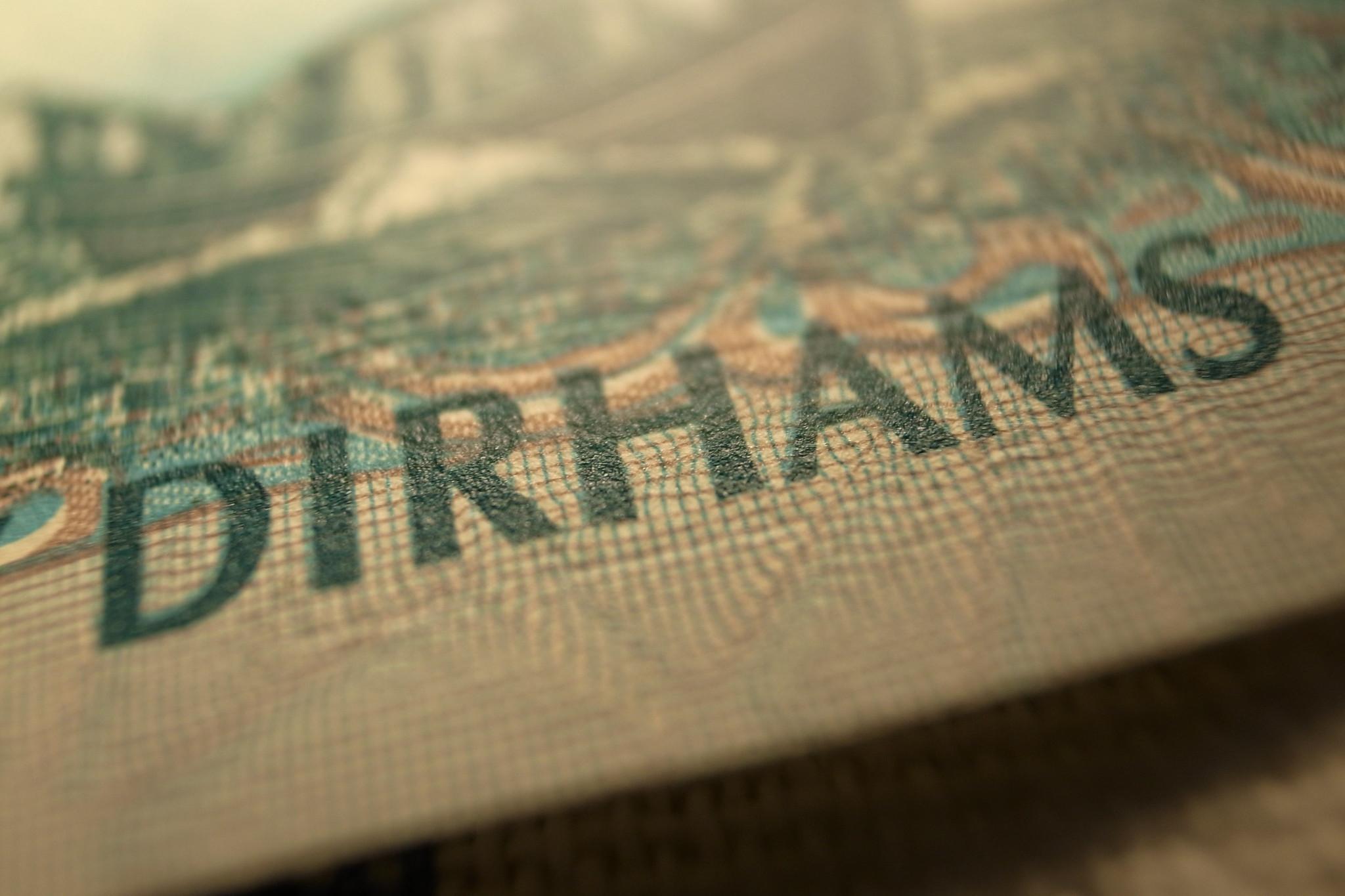
In addition to rent, it is worth considering the cost of utilities, which are quite high in Dubai. One particular expense is water, which is expensive to produce and transport in the desert. The cost of electricity should also be taken into account, especially in the summer when air conditioning runs virtually round the clock.
Food in Dubai is mostly imported, which makes it more expensive than in countries with developed agriculture. This is particularly true for fruit, vegetables and dairy products. For families with children, fee-paying schools and kindergartens are an additional burden on the budget.
In general, Dubai is suitable for those who are prepared to make significant monthly expenditure. However, many residents find that the level of income compensates for the costs, especially with competent budgeting.
Exclusively private access to medical services
Medicine in Dubai is of a high standard, but only available for a fee. Free medical services are available only to UAE nationals, while tourists and expats must pay for treatment out of pocket or through insurance.
Insurance is usually paid for by employers, but basic plans often cover only basic medical services. Extended insurance packages that include dental, eye care or complex procedures cost considerably more.
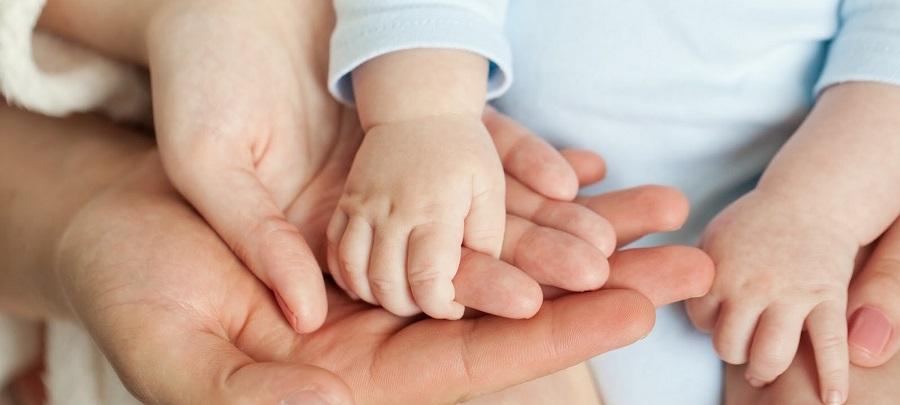
Without insurance, the cost of medical services can be daunting. For example, a typical visit to a general practitioner costs $100-150, while a hospital stay with surgery can cost thousands of dollars. It is therefore essential for all expats to take out quality health insurance.
Despite the high prices, the quality of service and the professionalism of the doctors attract patients from all over the world. Dubai has recently become a centre for medical tourism, offering modern equipment and comfortable treatment conditions.
Difficulty of naturalisation
It is almost impossible for foreigners to obtain UAE citizenship. The main way to stay in the country is on a resident visa, which must be renewed regularly. Even the purchase of a property worth $200,000 does not give the right to permanent residency, but only an 'extended' visa for several years.
Note: A person of non-Arab origin can obtain citizenship either through special merits and services to the UAE, or through naturalisation (but this requires 30 years of permanent residence in the country). A woman can marry a national and obtain citizenship in 7 years (if she gives birth to a child) or otherwise after 10 years.
Renewal of the ordinary visa involves additional costs and requires certain conditions to be met, such as maintaining employment or owning property. This can be particularly costly and inconvenient for individual families or single people.
In addition, the law prohibits dual citizenship, making the transition to a UAE passport undesirable for most expats. This limits the options for those who wish to be 'global citizens'.
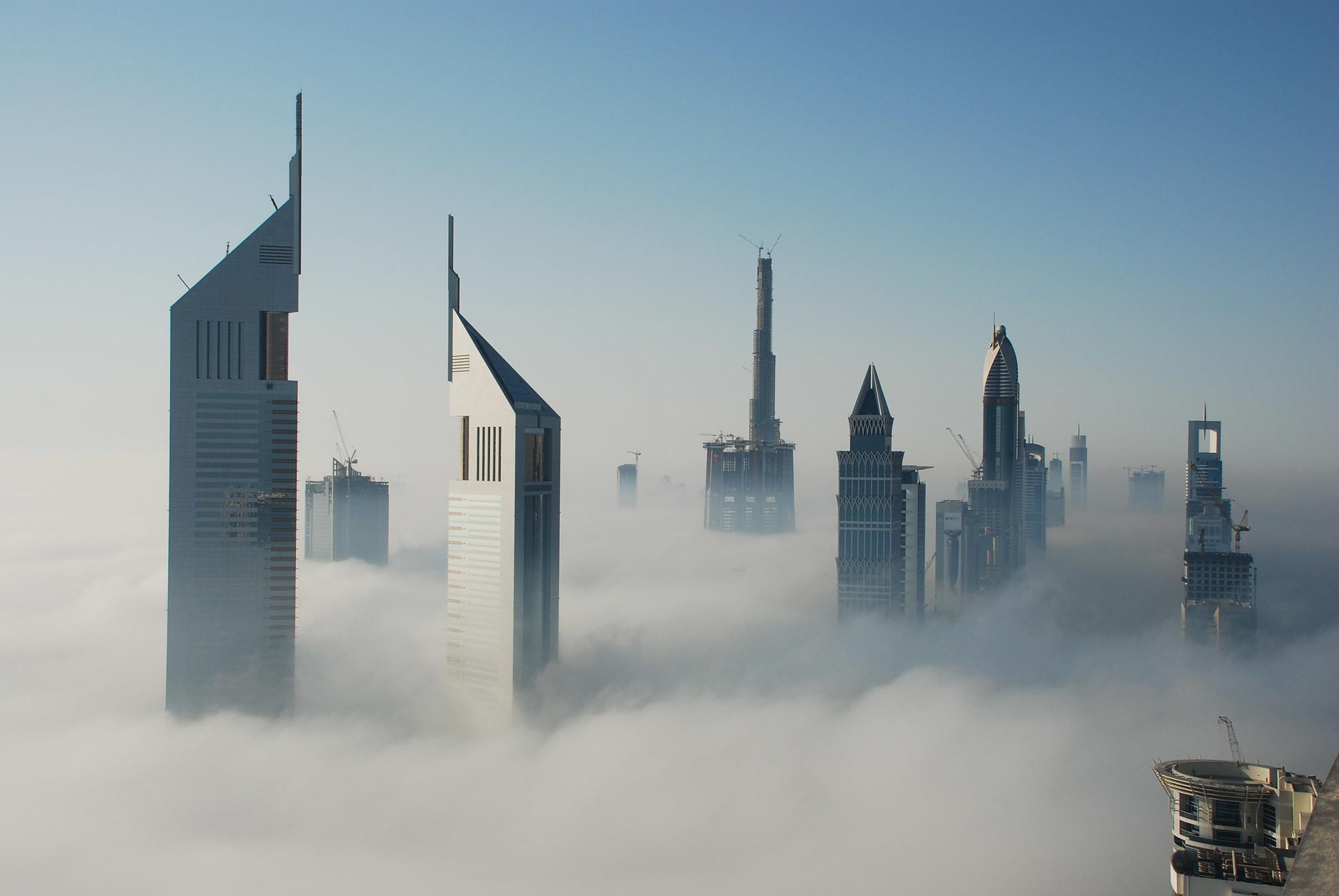
For those considering Dubai as a temporary home, these conditions may be acceptable. However, for long-term living, the need for permanent proof of residency must be considered.
Not the best ecology
Despite its modern infrastructure, Dubai's environmental situation leaves much to be desired. High traffic congestion and an abundance of transport lead to significant carbon dioxide emissions. In addition, sandstorms, a lack of natural greenery and an arid climate contribute to air pollution, which is particularly noticeable during heat waves.
Noise pollution is also an issue. New projects are constantly being built in the city, creating noise in residential areas. Car traffic, especially during rush hours, exacerbates the situation and causes additional discomfort for residents.
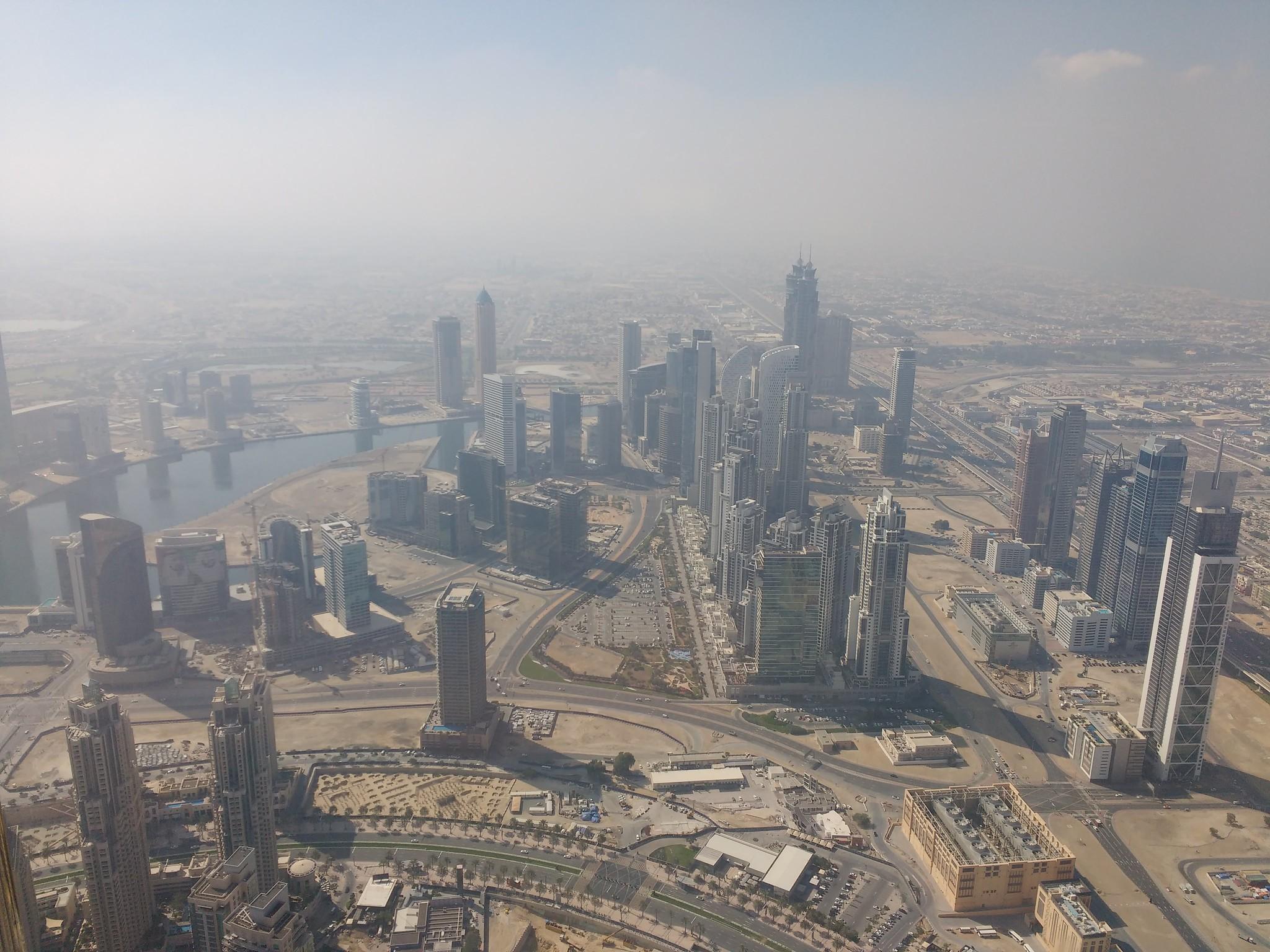
The authorities are making efforts to improve the environmental situation by investing in green technologies and initiatives to reduce emissions. However, environmental issues remain a key concern for the city.
Uninhabited buildings and neighbourhoods
One of the characteristics of Dubai is its rapid development. This means that the majority of buildings have been constructed in the last few decades, leaving many neighbourhoods - especially new residential developments where only a small number of apartments are occupied - feeling uninhabited.
Such neighbourhoods often look picturesque, but may lack the infrastructure for everyday life, such as shops, schools or recreational areas. Construction is ongoing in many places, and residents have to put up with noise, dust and inconvenience.
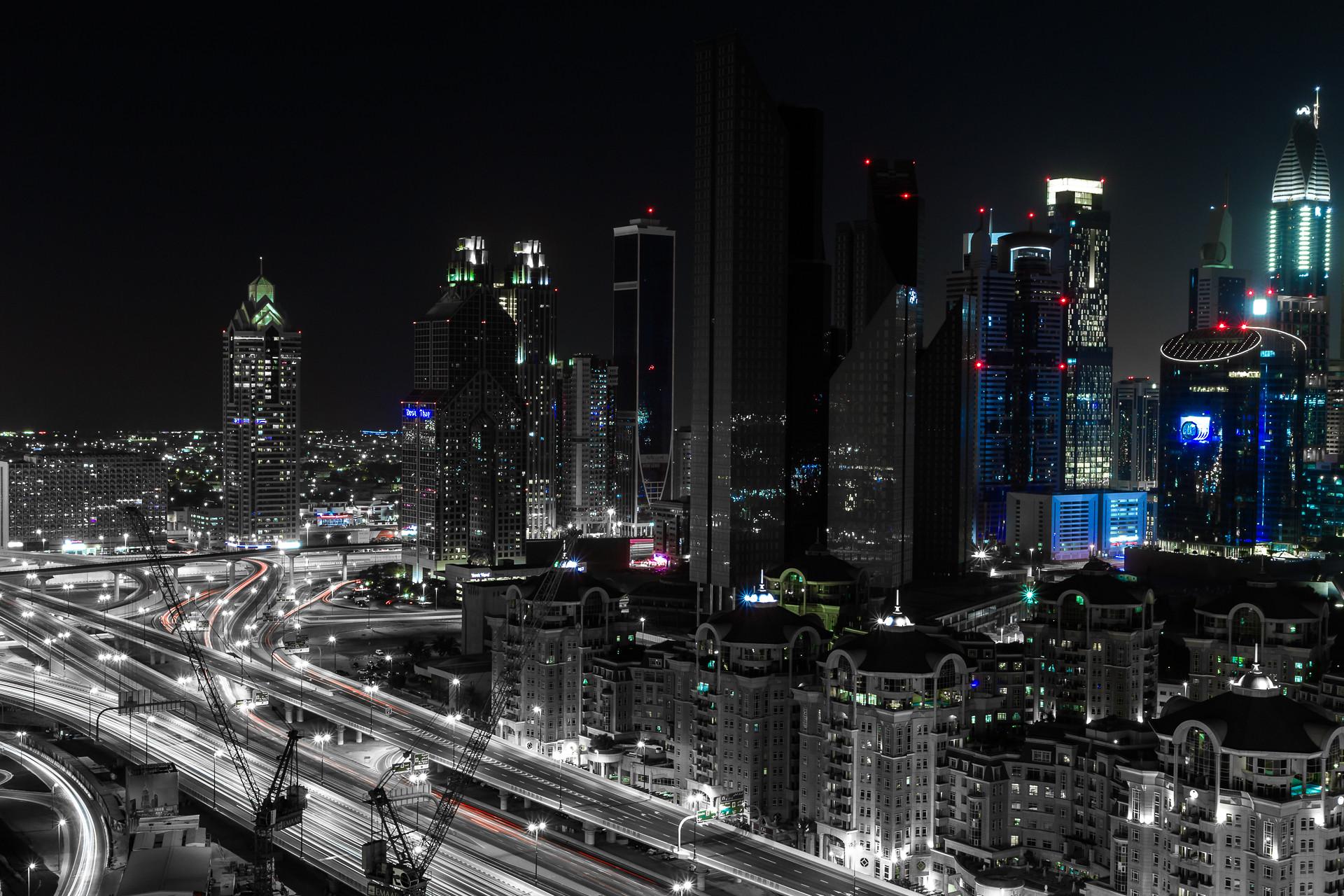
Historic architecture is virtually absent from the city. Dubai is known for its modern skyscrapers and innovative projects, but there is very little cultural and historical heritage. For those who appreciate the atmosphere of old cities, this can be a disappointment.
At the same time, new neighbourhoods tend to have high-quality infrastructure and the situation is gradually improving as people move in. However, it can be difficult to get used to the 'newness' of the city, especially for people looking for cosiness and tradition.
Traffic jams and high fines for traffic offences
Despite the modern roads and excellent infrastructure, traffic jams are common in Dubai, especially during rush hours. The large number of cars on the road causes traffic delays, which can be a problem for those who are used to getting around the city quickly.
Traffic laws in the UAE are strictly enforced and fines for breaking them are high. For example, fines for speeding or parking illegally can be several hundred dollars. This encourages drivers to obey the rules, but can be stressful for those new to driving in Dubai.
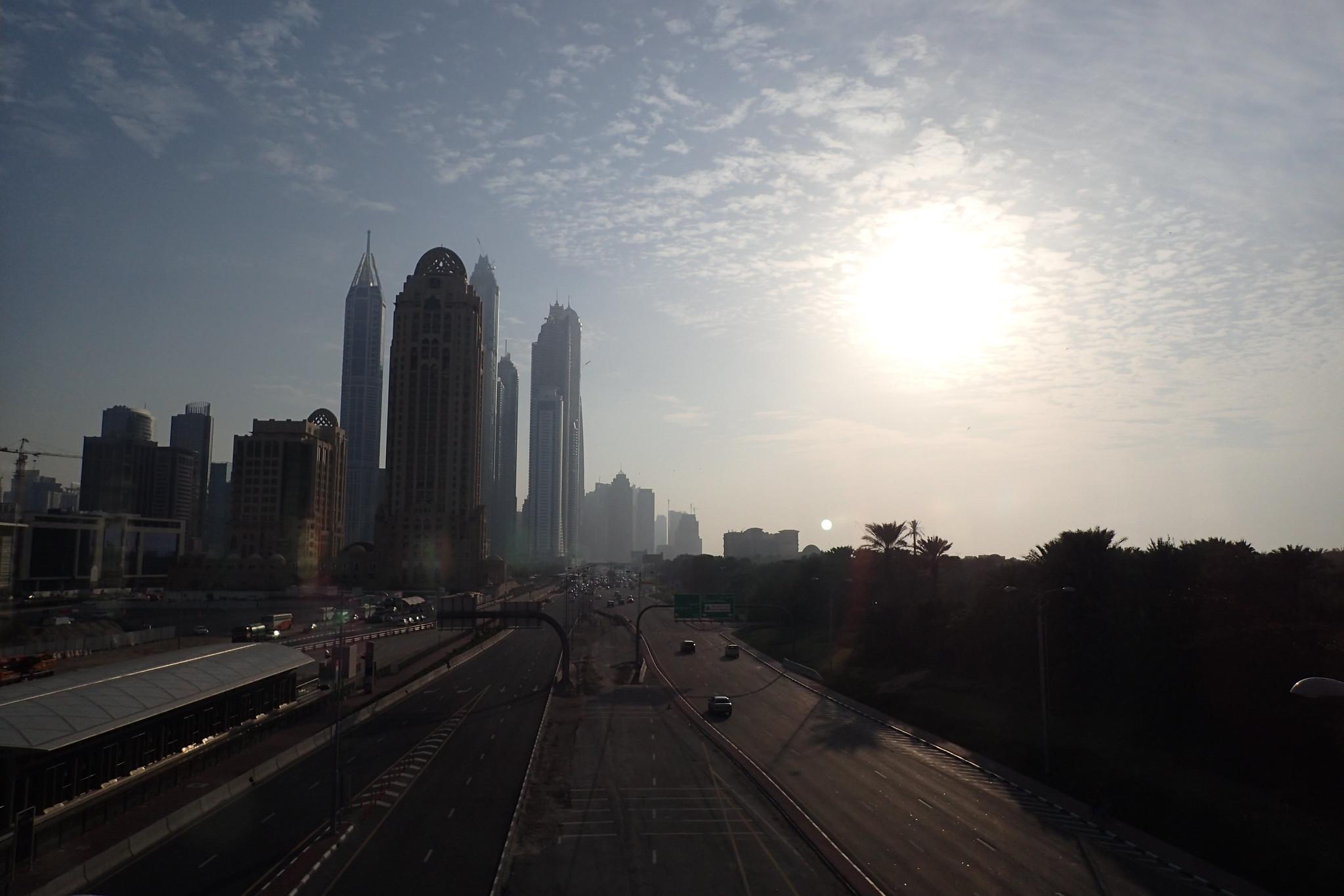
In addition, complex intersections and multi-level roads can be unfamiliar to newcomers. Despite the availability of GPS, orientation on the ground can take time. Finding a parking space can be difficult, especially in popular areas.
The authorities are working to improve the transport system, including extending the metro and creating new public transport routes. However, the car remains the primary mode of transport for many city dwellers, and this is a force to be reckoned with.
Scarce nature
Dubai is located in the desert, which determines the nature of the city. There is virtually no natural vegetation, mountains, rivers or forests around the city. The main landscape outside Dubai is sand and stony wasteland, which may not appeal to nature lovers.
The greening of the city is artificial. Palm trees, parks and green avenues require huge amounts of water to maintain, and their number is limited. For those used to a variety of landscapes, the lack of natural beauty can be a disadvantage.
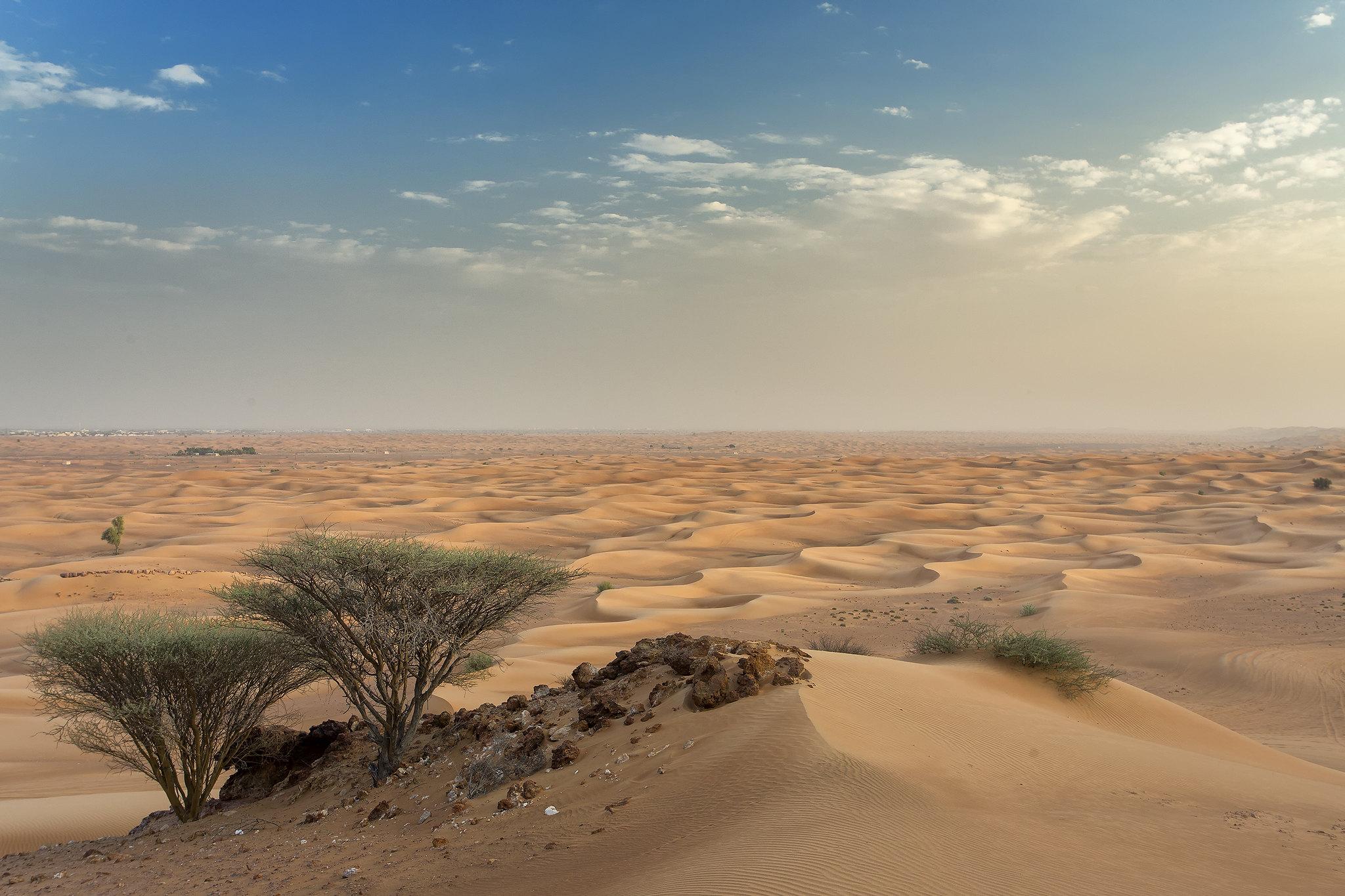
Natural attractions such as mountains or waterfalls are located outside the Emirates. To enjoy the views, one has to travel to neighbouring countries or regions, which takes time and adds cost.
However, the city compensates for this with man-made projects such as 'wonder gardens' or water parks, which provide an opportunity to enjoy beauty - albeit man-made.
Fruits and vegetables
Due to the lack of fertile land in the UAE, most fruit and vegetables are imported from abroad. This affects both cost and quality. Many products have no distinct flavour, and local greenhouse vegetables and fruit are often inferior in quality to imported produce.
Prices for fresh produce are significantly higher than in countries with developed agriculture. This is particularly true for seasonal berries and exotic fruits. This can be a problem for families with children or those who follow a diet rich in farm produce.
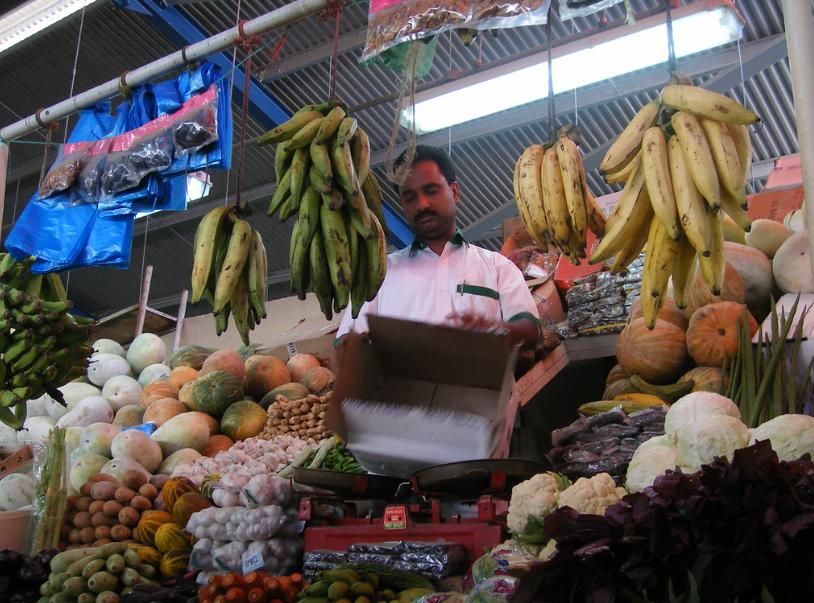
Local markets offer an alternative to supermarkets, but even there prices are rarely low. In addition, the choice of food can be limited by season and supply. For those used to a wide range of fresh and affordable fruit and vegetables, it can take time to adapt to local produce. However, frozen and canned foods may be an option.
Very hot summers
The summer season in Dubai lasts about four months and temperatures during this time often exceed +40°C. Daytime temperatures can reach +50°C (122°F), making it almost impossible for non-residents to stay outdoors.
The hot climate forces urban dwellers to spend most of their time in air-conditioned rooms. This results in high energy costs for both homeowners and tenants.
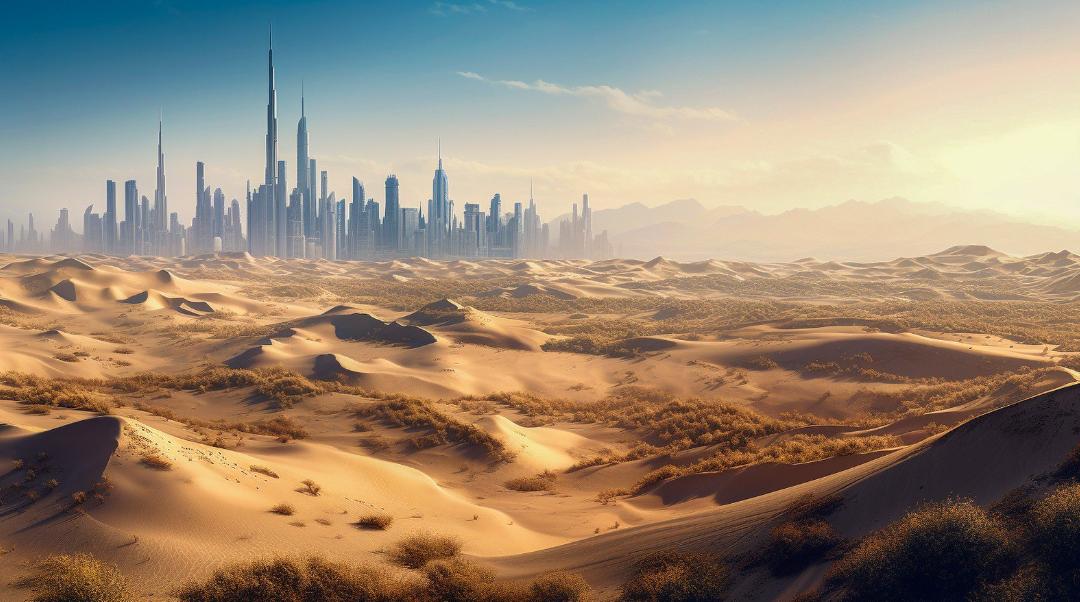
Outdoor activities become impossible, and even short walks require careful preparation. This reduces the quality of life for those who are used to spending a lot of time outdoors. At the same time, the city's infrastructure is adapting to the heat: air conditioning is available in all buildings, cars and public transport. However, it is impossible to fully compensate for the discomfort of high temperatures.
Complicated and unfamiliar rules of conduct
Dubai is a city with traditions and laws based on Islamic norms. The ban on drinking alcohol in public places, the strict dress code in some areas and religious restrictions may be unfamiliar to foreigners.
Even minor offences such as offensive gestures or loud music can result in fines or, more seriously, deportation. It is therefore important to respect local laws and cultural traditions to avoid misunderstandings.
At the same time, many neighbourhoods and establishments are geared towards tourists and expats, making life more familiar. Nevertheless, certain rules should be observed, especially when visiting government offices or religious places. Such restrictions require adaptation and respect for the local culture. For those who are prepared to do so, living in Dubai can be not only comfortable, but culturally enriching.
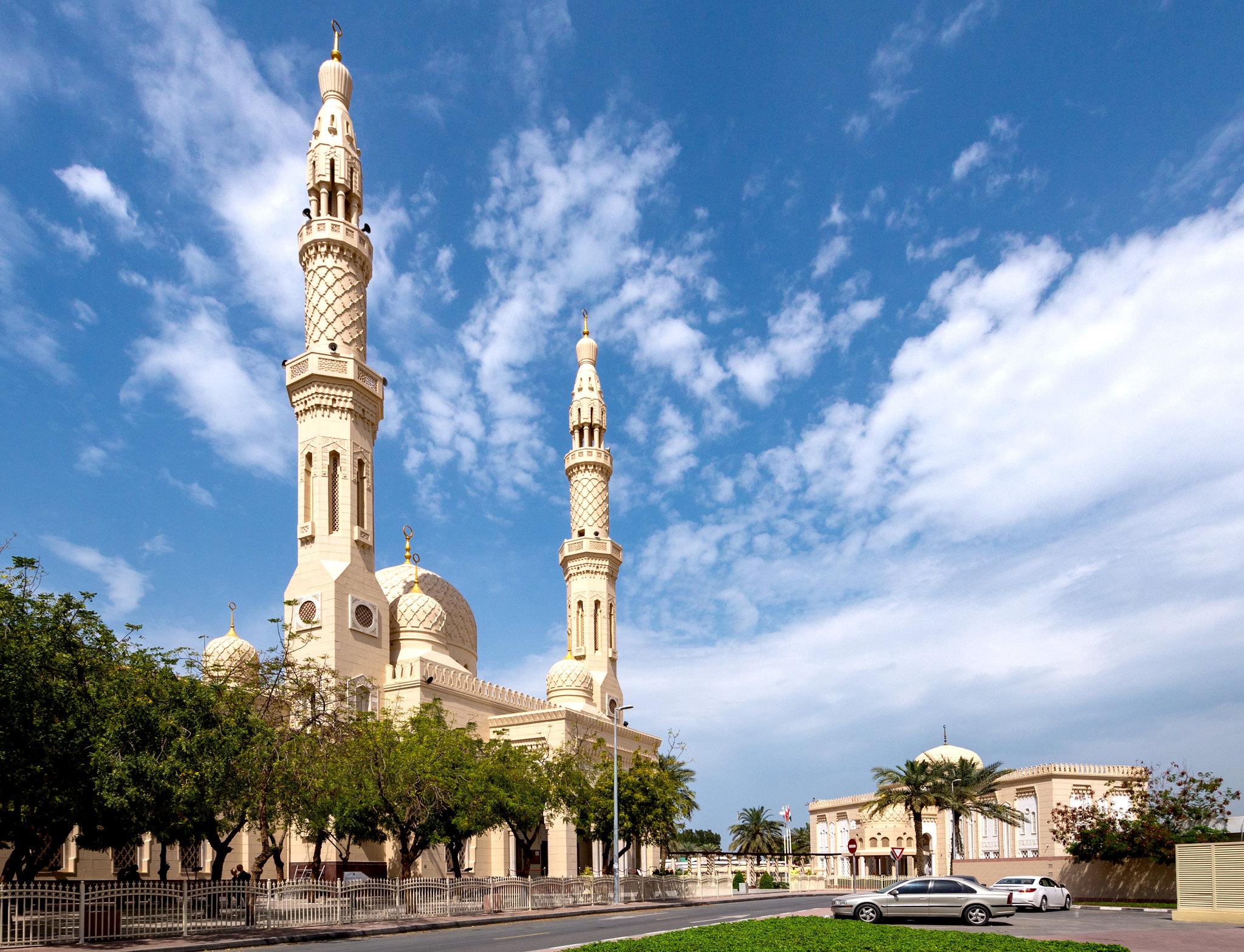 Is it worth living in Dubai?
Is it worth living in Dubai?
Dubai is truly a city of contrasts, combining hi-tech infrastructure, rich culture and unique living conditions. Despite the high cost of living and climatic peculiarities, many people find it an ideal place to work, do business or live temporarily. The level of service, safety and outlook make the city attractive to people from all over the world.
For those seeking career or entrepreneurial opportunities, Dubai can be an excellent choice. There are favourable tax conditions, an actively developing business environment and a high demand for skilled professionals in various fields. If a person is attracted by a stable economy and opportunities for growth, the city has much to offer.
However, it is important to remember that Dubai is not for everyone. The high cost of living, climate and limited opportunities for citizenship or permanent residency can be significant factors. Those looking for more affordable options with fewer restrictions should consider neighbouring emirates such as Fujairah or Ajman, which offer lower prices with similar benefits.
Before moving, it's important to carefully weigh up the pros and cons in terms of lifestyle, budget and priorities. Dubai can be an ideal destination if you are prepared to adapt to its peculiarities and make the most of its opportunities.

